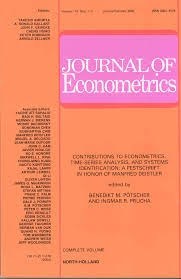
Blasques, F. and Nientker, M. (2023). Stochastic properties of nonlinear locally-nonstationary filters Journal of Econometrics, 235(2):2082--2095.
-
Affiliated author
-
Publication year2023
-
JournalJournal of Econometrics
This article delivers conditions for the existence of a unique stationary, ergodic and φ-mixing invertible solution for nonlinear time-varying parameter models that are locally non-stationary or explosive. The assumptions are different from existing conditions as they do not impose Lipschitz, bounded growth or drift restrictions. Instead we require that the time series contains resetting dynamics. These dynamics are present in time series with sudden changes, such as stock prices with financial bubbles. We explain how our results can be applied to multiple models with time-varying conditional mean and time-varying conditional variance. Additionally, we show the empirical relevance of locally non-stationary models by developing a robust score-driven locally-nonstationary location model that allows us to identify price bubbles. In particular, we revisit the early warning system for Alert of Price Spikes (ALPS) developed by the World Food Programme (WFP, 2014). Our model is able to correctly identify price bubbles both in-sample and out-of-sample. We show that this information can be crucially relevant for the Global Information Early Warning System of the Food and Agriculture Organization (GIEWS) of the United Nations which identifies market bubbles in prices of grains and cereals in order to manage and prevent impending food crises in developing countries.